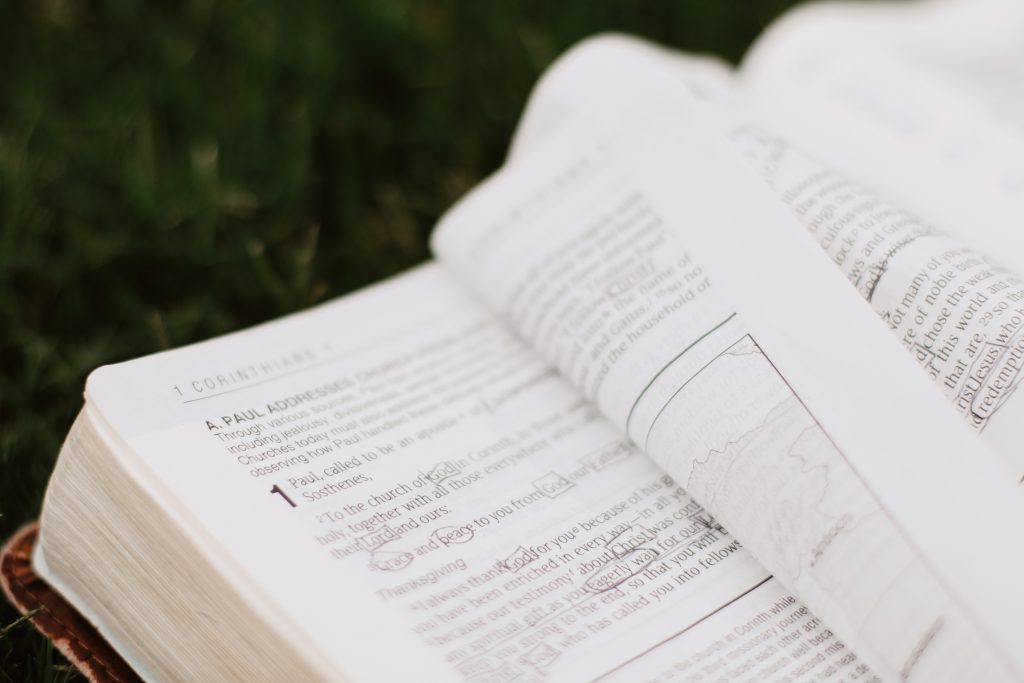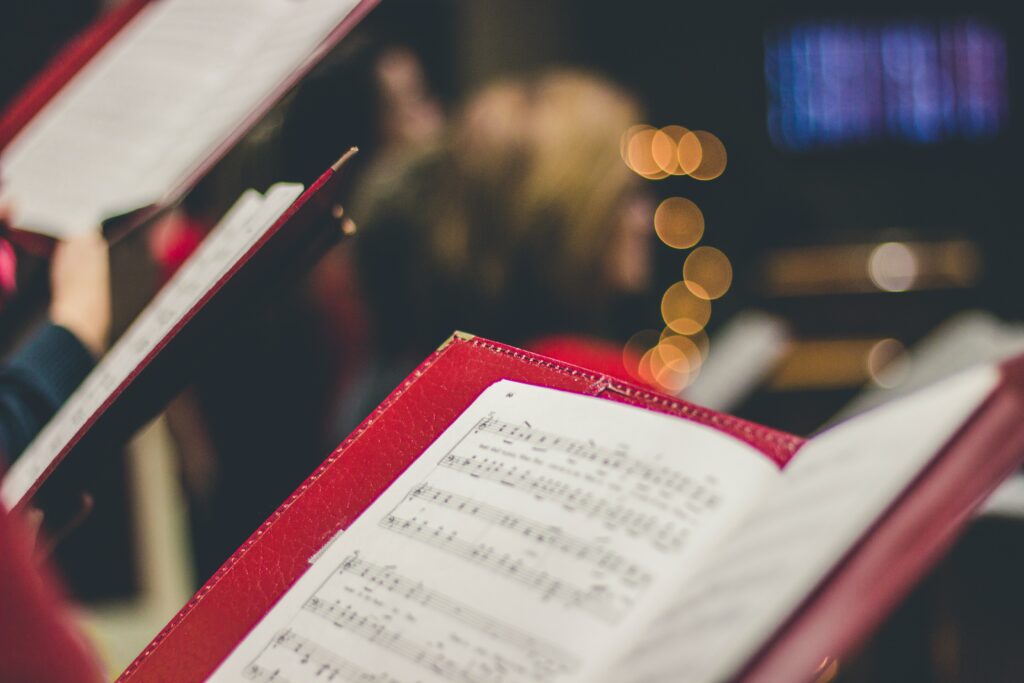
Where did the Bible come from?
The answer to that question depends on what you mean.
Most simply, and most importantly, the Bible comes from God. Paul tells Timothy that the words of the Scripture (and in this context, he pretty clearly means the Hebrew Scripture, or what we Christians call the Old Testament) were breathed out by God (2Ti 3.16), and Peter says that the human authors were “moved” by the Holy Spirit (2P 1.21). That word “moved” is used in Acts of the storm (Ac 27.15, 17) that nearly blew Paul’s ship all the way to Africa (Ac 27.17). Since the Greek word for “wind” is the same as the word for “spirit,” it’s pretty clear that Peter is engaged in wordplay.
But the Bible also came from human authors, people like us. The fact that they were blown along by the Holy Wind doesn’t mean that they had no control over what they were writing. When the prophet Jeremiah accuses the Lord of deceiving him (Je 20.7), he’s clearly expressing his own opinion, not God’s. And when Paul writes that he baptized only two people in Corinth (1Co 1.14), you can see his thought process as he corrects himself in the succeeding verses: “Oh, yeah, I baptized that one family—and, uh, I don’t remember whether I baptized anybody else” (1Co 1.16). (That’s clearly my informal paraphrase.) Paul’s words clearly indicate that he isn’t just quoting the Holy Spirit, who most certainly does remember whether Paul baptized anybody else.
In the famous “needle’s eye” passage, Matthew (Mt 19.24) and Mark (Mk 10.25) use the common Greek word for “needle,” the kind of needle any first-century Jew could find in his house. But many manuscripts have Luke (Lk 18.25) using a different word for “needle,” a technical term for a surgical needle. Luke, the doctor, uses the first Greek word that comes to mind for “needle”; he speaks from his own experience.*
So the authors, though completely under the direction of the Spirit, played a role in the composition of the biblical text.
Let’s take this a step further. The authors themselves used other sources as they composed their works. I’m not speaking here of the common critical assumption that the Genesis creation story came from the Enuma Elish, or that the flood story came from the Epic of Gilgamesh. I think it’s much more likely that those pagan myths came from the cultural memory of an actual ancient creation and an actual ancient global flood, the one Moses describes in Genesis.
Rather, I’m saying that the authors borrowed freely from other ancient works, often saying so at the time—in effect, inserting a footnote.
Now, we all know that the New Testament often quotes from the Old. The simplest way to see this clearly and quickly is to flip through the Christian Standard Version (available online for free at biblegateway.com). The editors of that version have opted to set all NT quotations of the OT in bold-faced type, making them visually jump right off the page. And if you start in Matthew, who quotes the OT frequently, you’ll see a lot of bold-faced type.
But the biblical writers don’t limit themselves to quoting just other writers of Scripture. They quote from all over the place—including Persian historical archives and classical Greek poets waxing eloquent about Zeus. It’s possible, though not certain, that Jesus himself, resurrected, glorified, and at the right hand of the Father, quotes a classical Greek poet.
And these writers do so without seeming to sense any need to explain themselves or to offer some sort of disclaimer.
Next time we’ll look at what’s there in the biblical text.
* A note for those of you thinking as you read: which Greek word did Jesus actually use? And which Gospel author reported that word inaccurately? Freak out thou not, my friend; Jesus almost certainly was speaking Aramaic, and he used the common word for “needle” in that language. Matthew, Mark, and Luke were translating Jesus’ words into Greek as they wrote, and so each writer would choose the first Greek word for “needle” that popped into his head, based on his experience.
Photo by madeleine ragsdale on Unsplash





